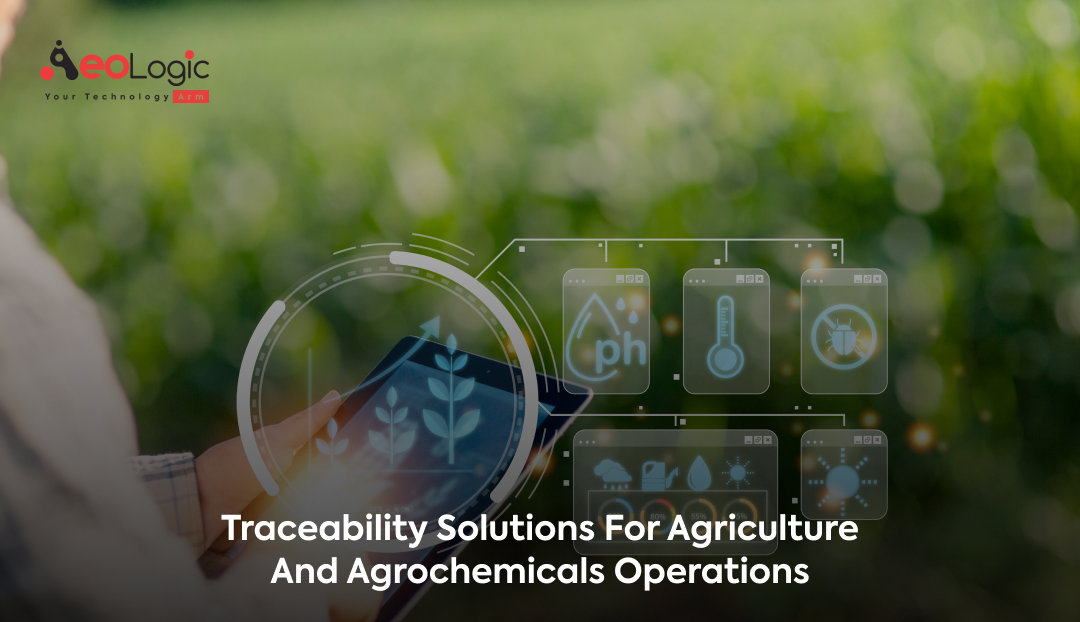The idea of traceability solutions for agriculture isn’t new. It has been present in varying degrees in a number of supply chains, more so in the B2B sectors where sale volumes are large. End- to- end traceability, still, wasn’t extensively accepted until the epidemic. The presumption up until now has been that the end- user is unconcerned about the product’s origin as long as it offers good value. But with traceability, consumers can know both the product’s origin and what happened to it as it passed through the supply chain. In this composition, we will explore the traceability solutions for agriculture and agrochemicals operations.
Also read: Benefits of Implementing the Blockchain in Agriculture
The Need for Traceability Solutions For Agriculture
The supply chain for a product can be so intricate that traceability is a prerequisite for numerous sectors. Due to traceability, suppliers are suitable to respond fleetly to any challenges by maintaining a record of the full product and distribution history. For illustration, in the event of a product recall, suppliers can identify the cause of the issue and direct distributors to take the product off the market. This securities both the consumer and the provider from any legal action and potentially dangerous products. Also, a product’s traceability can be employed to demonstrate particular characteristics, similar as its sowing procedures, country of origin, storehouse history, and much further.
Transparency is asked when consumers have more knowledgeable about how goods are manufactured and the problems related to manufacturing.
Agrochemical Track and Trace Solutions
The main ideal of agrochemical track and trace is to insure that the pesticide residue load of foods that directly affect human beings health remains within the limits determined by different associations. Because the impact of exploitation of pesticides and chemicals on public health is too great to be undervalued. By assuring the agrochemical track and trace, the life cycle should be followed from product to the field.
Counterfeiting can be averted with agrochemical track and trace system operations used for traceability solutions for agriculture. In addition, illegal competition and profitable damage to the planter can be averted. As in all sectors, counterfeiting is a veritably serious problem for agrochemicals. The use of fake products negatively affects countries due to the informal frugality. The most important factor in the increase of counterfeiting is the increase in the market value of agrarian chemicals. In the light of this data, it’s estimated that the agrochemical market, which has a worldwide value of 245.19 billion ones in 2020, will approach 310 billion ones in 2025.
Fake products are also a threat factor for the health of growers and farm workers. By entering the human body directly with the agrarian product it affects, it deeply harms public health. Fake products, which find a wide place in the market as a result of not using an agrochemical track and trace system, are the source of some ecological problems. In addition to this, discovery of fake fungicides in exported products will cause buyers to rightfully cancel sales. This also damages the country’s image.
What Elements Make Up the Food Traceability System?
Traceability’s two primary elements are – Tracking and Tracing.
Tracking refers to the position of a certain product unit or batch at a specific point in the product process. It starts at the processing stage and continues through distribution and end-user consumption in a food supply chain, also known as the downstream path. Tracing, frequently known as the upstream path, is the attestation of a product’s journey from its point of origin to the ultimate consumer.
How Can It Profit Farmers?
Traceability has numerous given advantages. Nonetheless, they might act as trade walls for small-scale farmers in developing nations, particularly those that grow horticulture and other fresh goods. Small-scale agrarian producers who warrant the resources to stick to increasingly strict norms, especially those taking the tracking and monitoring of environmental and supply chain variables through sophisticated technologies, may be barred from the market for safe and traceable food. For producers, traceability is a useful marketable strategy. Product traceability is a demand, not an option and the key is to figure out the best way to negotiate this and seize the possibilities that are present.
The Future of Food Traceability Solutions For Agriculture
Both people and the world we live in depend on food for survival. To break the system’s multiple issues and produce a healthy, nutrient-rich, and sustainable food ecosystem, a revolutionary approach is needed. Technology plays a serious part in fast- tracking this shift. Solutions for food traceability enabled by blockchain offer a foundation to attack these issues and upend the agri- food assiduity. In order to meet client demand for transparent food, traceability makes it easier to cover environmental, social, and profitable processes in agriculture value chains.
Some of the advantages of food traceability are given as follows:
- Clarity with consumers
- Identifying and addressing concerns with food safety
- Optimizing the supply chain and cutting losses
- Verifying sustainable practice claims.
- The food supply chains will be converted by technology- driven traceability systems with constant data gathering throughout the supply chain.
- A safely distributed tally that enables data sharing and analysis
- Healthy and honest collaboration between stakeholders, manufacturers, and consumers
Also read: Traceability Solutions for Supply Chains with Examples
How Do We Help You Maintain Traceability and Translucency in Farm Product?
With thorough record- keeping of working hours, pest protection, pesticide use, fertilizers, and the geographic locales of fields on which a particular crop is being cultivated, Aeologic Technologies encourages best product practices for crops. By using our food traceability systems, you may break any quality control and threat operation issues by linking the product in real-time to data that shows how it was handled during the growing season and in which position. This will give a competitive advantage and make it simpler for buyers of gathered yield to pierce authentic data, allowing their trust in your company. Connect with us now!










